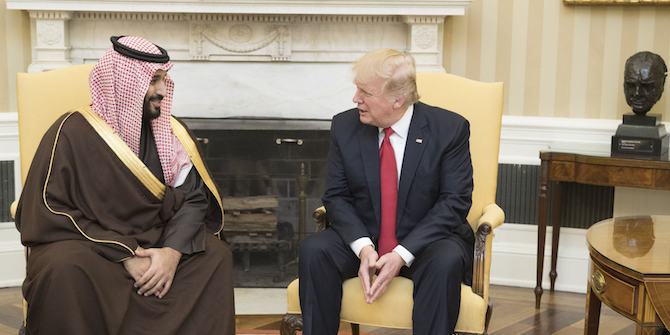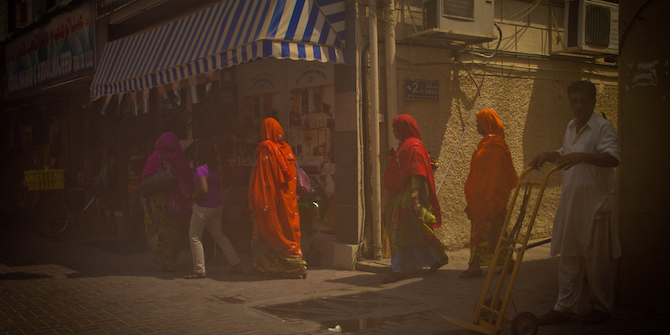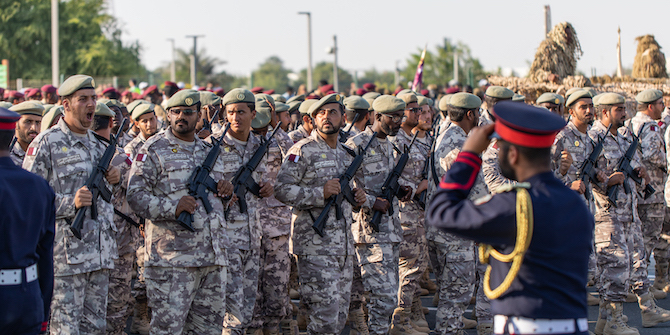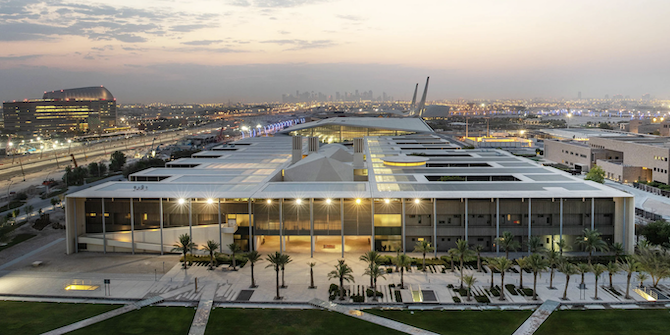by Mariam El Atouabi
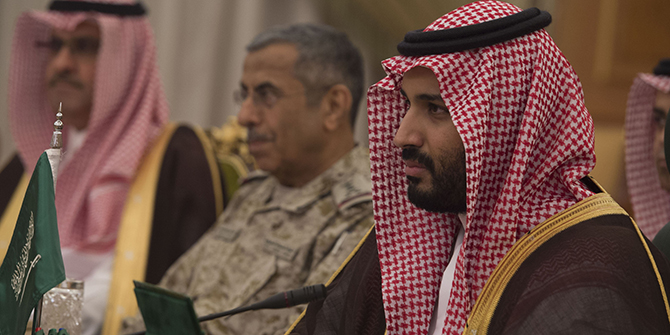
Saudi Arabia’s Vision 2030 is set to reframe the economic landscape of the Gulf region. Unveiled in April, the ambitious plan aims to overhaul the Saudi economy and reduce the Kingdom’s reliance on oil. First introduced by Deputy Crown Prince Mohammed bin Salman, Vision 2030 also highlights the Kingdom’s ambition to privatise five percent of the state-owned Aramco—the world’s most valuable company. This partial privatisation would help the company gain more transparency and dynamism. It would also solidify Saudi Arabia’s commitment to diversification and put an end to its status as a rentier state.
Vision 2030’s main objectives are not the first of their kind in the region. The sharp decrease in oil prices in 2015 has led to an unprecedented budget deficit for rentier states. The certainty of increasing oil scarcity has already driven neighbouring states, such as the UAE and Kuwait, to embrace similar reforms. Both countries have adopted economic agendas geared toward the reinforcement of direct foreign investments and the diversification of their economies. How could Saudi Arabia’s Vision 2030 be any different and more impactful on the regional scale?
As the first oil exporter of the Middle East, and the second worldwide, Saudi Arabia, through the implementation of its Vision 2030, could potentially lead a recalibration of regional priorities and inspire the emergence of a new economic paradigm.
The negative impact of the decline in oil prices has been even more drastic for Saudi Arabia because of the social advantages that the oil revenues produce for Saudi citizens. Oil revenues greatly shaped key elements of modern Saudi society, as Saudi citizens enjoy several leverages, such as free education at home, grants to study abroad, an efficient healthcare system and interest-free loans, among other benefits.
Saudi Arabia’s position in the Middle East is divided between being both the main economic and political engine in the region, particularly within the GCC. The Kingdom’s influence within the GCC is unquestionable as it remains the main growth engine of the intergovernmental organisation, accounting for more than 50% of its GDP. The diversification of the Saudi economy and its aim to open the economy to foreign investors would, therefore, considerably impact the whole region. Saudi Arabia could likely follow the lead of the UAE by creating a free-trade zone, which would be extended to all GCC members. On the political level, the status of Saudi Arabia as the leading engine of regional recalibration has been demonstrated by its capacity to gain automatic support from other GCC states, for example following the diplomatic tensions between the country and Iran as a result of the torching of the Saudi Arabia’s embassy in Tehran.
Vision 2030 clearly highlights the ambitions of these regional players to gain more power and influence, and independence from the rest of the world. As highlighted by the Council of Ministers official press release, one of the commitments of the 2030 plan is the objective of ‘localising over fifty percent of military equipment spending’, which would provide Saudi Arabia a more important lever of action and more independent military potence.
Nevertheless, much like the Keynesian economic theories, Saudi Arabia’s Vision 2030 relies on the core idea that economic central planning, that is to say from the government, leads to growth and resilience. The royal family still plays the largest role in the structuration and maintainance of the political and economic status quo of Saudi Arabia. The Kingdom has, for a long time, prioritised local development in order to deepen the integration of the diverse communities, taking into consideration the multiplicity of tribes and the social tension that these could potentially retain. However, through privatisation and the “Saudisation” of the workforce, Saudi Arabia is revealing that the dominant presence of the welfare state could see a near-end which could affect the rest of the countries in the region.
The economic ambitions underlined by Saudi Arabia’s Vision 2030 could, nevertheless, remain solely on the economic level. The current political turmoil has dampened the objectives of the ambitious Vision 2030, and the recent official visits of Deputy Crown Prince Mohammed bin Salman to Washington and Paris seem to have been ineffective. Indeed, the war in Yemen, last year’s Mecca stampede, and the recent coordinated terrorist attacks within Saudi territory harmed the Kingdom’s image and position. Conflicts, like those in Syria and Iraq, in which Saudi Arabia and Iran are waging proxy wars, have revealed a region ruled by political divisions rather than by a desire for sustainable regional development. Intraregional tensions seem to impact the regional economy and exacerbate political disagreements.
 Mariam El Atouabi is a fresh graduate student from Sciences Po Rabat where she studied Middle East Geopolitics and Global Security. She is the co-founder and president of the NGO Josoor, whose mission is to reinforce peace and cooperation in the MENA region through youth empowerment and advocacy for a positive counter-narrative on the region. She tweets at @MariamElat.
Mariam El Atouabi is a fresh graduate student from Sciences Po Rabat where she studied Middle East Geopolitics and Global Security. She is the co-founder and president of the NGO Josoor, whose mission is to reinforce peace and cooperation in the MENA region through youth empowerment and advocacy for a positive counter-narrative on the region. She tweets at @MariamElat.



